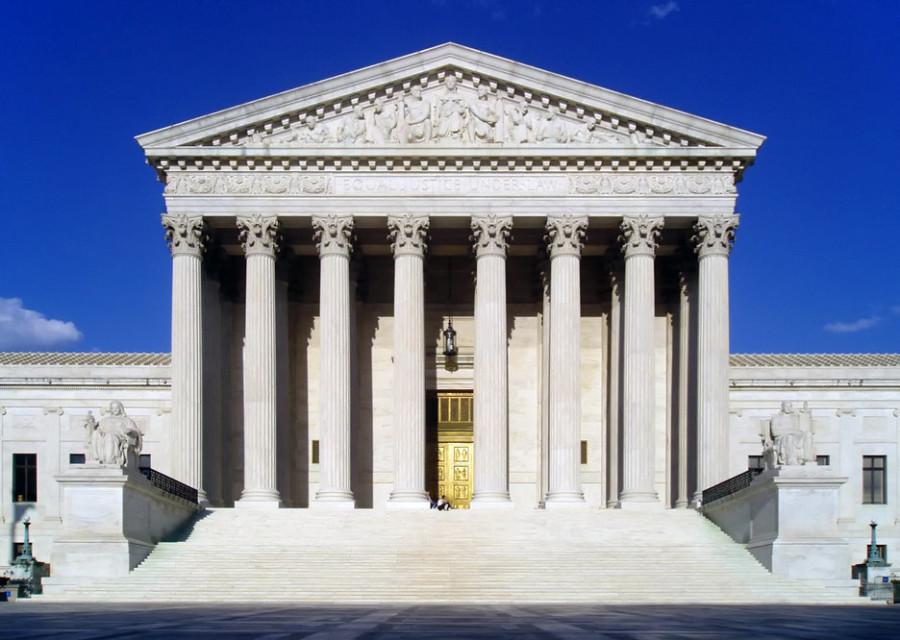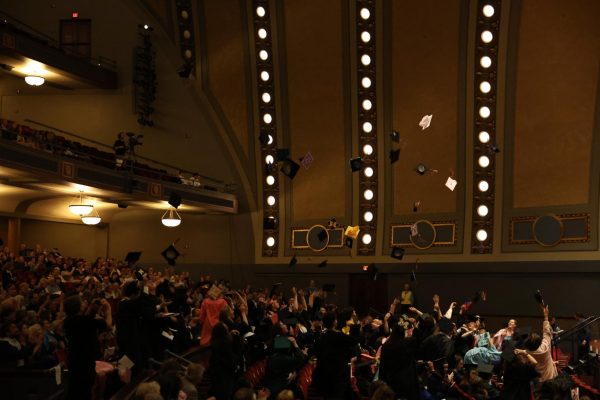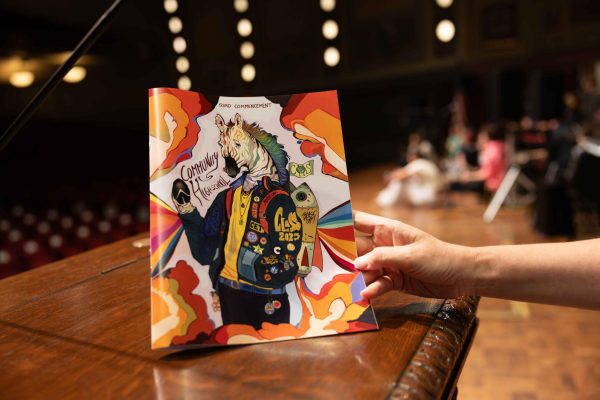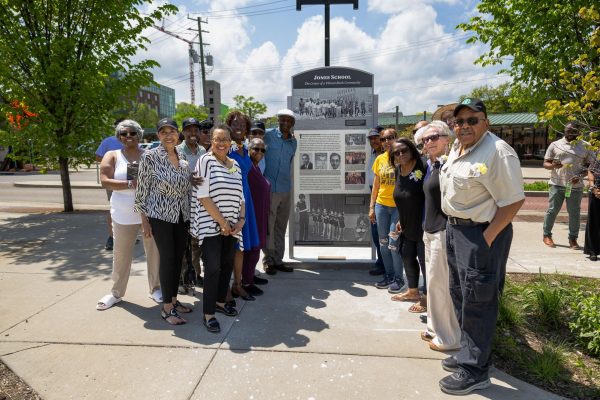Obergefell v. Hodges
It is an incredible transition in civil rights history; one which is, quite frankly, unparalleled. The speed which the LGBT rights movement has achieved in recent years eludes any comparison from this county’s past. And these next few months from April to June, 2015, will play a key role in the history of LGBT rights.
On April 28, the Supreme Court will hear arguments on whether the right to same-sex marriage is guaranteed by the U.S. Constitution. The Court will likely spend the next two months debating amongst itself and formulating the majority and dissenting opinions. And, in late June, the country will have the Court’s decision.
“The Supreme Court really had to take the case to settle the differences between the appellate decisions,” said Tracey Van Dusen, the AP Government teacher at Pioneer. She was citing the Appellate court rift where the 6th Circuit Court of Appeals is the only circuit to rule in favor of same-sex marriage bans.
Now four cases from the 6th Circuit (Ohio, Michigan, Kentucky, and Tennessee) will be argued. Like most cases that reach the Supreme Court, a plethora of briefs have been submitted on each side. Some from individuals, some from corporations, one from the Obama administration, and one–the “People’s Brief”–was submitted by the Human Rights Campaign and contains the signatures of 207,551 Americans who support marriage equality.
Michigan is one of the last states clinging to its ban. April DeBoer and Jane Rowse, of Hazel Park, Michigan, filed their lawsuit in 2012, hoping to gain joint adoption over the children they have raised for years.
The state has continually made clear that their family is not a family in its eyes. In District Court, one of the State’s witnesses was even thrown out, his testimony inadmissible. The Judge dismissed him as not an expert and not qualified to give evidence.
After its victory at the District Court, same-sex marriage was legal in Michigan for one day. Judge Judy Levy, a U.S. District Judge, officiated some of those weddings. Levy had been on the job for three days when the ruling was handed down by U.S. Judge Bernard Friedman, and one of the things she made sure of was to wear her Judicial robes.
“I wanted to convey that I was doing this with the full authority of the United States government,” Levy remarked.
Before 2013, the Federal government was barred from recognizing same-sex marriages through the Defense of Marriage Act (DOMA). Ann Arbor resident Andrea Deranian: “We had to go through an attorney separately when we decided to have Halee so that we would have wills, medical power of attorney, financial power of attorney, all these extra expenses so if anything happened Halee would be protected.” Halee is Ms. Deranian’s daughter.
After the repeal of DOMA in the court case United States v. Windsor, all federal laws that applied to opposite-sex married couples now apply to same-sex married couples.
“Getting rid of the Defense of Marriage Act meant we could file taxes jointly,” said Judge Levy, who herself is in a same-sex marriage, “and we had an enormous financial benefit from being able to do that. There are about 1,040 benefits and burdens of marriage federally–you’ll find the word marriage or spouse in 1,040 different regulations or laws–it meant that those applied to us.”
Obviously, these cases affect real people and their families. The four cases, consolidated under the title Obergefell v. Hodges, will make history no matter which way the Court rules.
Click this link to read the briefs in the four cases.
Cases before the Supreme Court of the United States:
Obergefell v. Hodges
Ohio
Jim Obergefell and John Arthur filed suit after they were informed that Ohio would not recognize Jim as John’s spouse on his death certificate (John later died of ALS). After flying in a specially chartered medical jet to Maryland to get married, the couple refused to accept the Ohio’s argument and went to court in July, 2013.
Deboer v. Snyder
Michigan
Michigan nurses April DeBoer and Jayne Rowse filed suit seeking to jointly adopt the children of the other spouse. Individuals and heterosexual married couples can adopt in Michigan, but not same-sex married couples. After a close call with a truck in the wrong lane, the couple decided to try and adopt the other’s children. It is the struggle for family recognition that has brought them to the Supreme Court.
Bourke v. Beshear
Kentucky
This suit was brought by Gregory Bourke and his husband Michael Deleon–who were married in Ontario–and also filed on behalf of their two children. Like the other cases this one deals with the issues of not being able to adopt the other’s children, and other state benefits that heterosexual married couples can receive.
Tanco v. Haslam
Tennessee
The Tennessee case was brought by four couples, one married in California and the other three married in New York, who, for a myriad of reasons, argue Tennessee’s marriage ban discriminates against them and their families.
Questions before the Supreme Court:
1) Does the Fourteenth Amendment require a state to license a marriage between two people of the same sex?
2) Does the Fourteenth Amendment require a state to recognize a marriage between two people of the same sex when their marriage was lawfully licensed and performed out-of-state?
Fourteenth Amendment to the United States Constitution, Section 1:
“All persons born or naturalized in the United States, and subject to the jurisdiction thereof, are citizens of the United States and of the state wherein they reside. No state shall make or enforce any law which shall abridge the privileges or immunities of citizens of the United States; nor shall any state deprive any person of life, liberty, or property, without due process of law; nor deny to any person within its jurisdiction the equal protection of the laws.”
The Equal Protection Clause (in the last line) serves as the basis for the four lawsuits.










